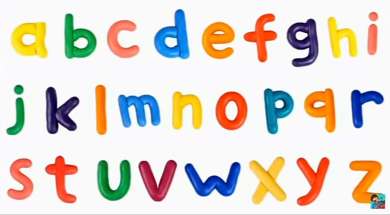A climate 911 Despite scientists' dire warning for the planet's future, emergency help is not on its way
Read this article for free:
or
Already have an account? Log in here »
To continue reading, please subscribe:
Monthly Digital Subscription
$0 for the first 4 weeks*
- Enjoy unlimited reading on winnipegfreepress.com
- Read the E-Edition, our digital replica newspaper
- Access News Break, our award-winning app
- Play interactive puzzles
*No charge for 4 weeks then price increases to the regular rate of $19.00 plus GST every four weeks. Offer available to new and qualified returning subscribers only. Cancel any time.
Monthly Digital Subscription
$4.75/week*
- Enjoy unlimited reading on winnipegfreepress.com
- Read the E-Edition, our digital replica newspaper
- Access News Break, our award-winning app
- Play interactive puzzles
*Billed as $19 plus GST every four weeks. Cancel any time.
To continue reading, please subscribe:
Add Free Press access to your Brandon Sun subscription for only an additional
$1 for the first 4 weeks*
*Your next subscription payment will increase by $1.00 and you will be charged $16.99 plus GST for four weeks. After four weeks, your payment will increase to $23.99 plus GST every four weeks.
Read unlimited articles for free today:
or
Already have an account? Log in here »
Hey there, time traveller!
This article was published 05/11/2019 (2227 days ago), so information in it may no longer be current.
Imagine a house is on fire. Imagine it’s yours. Imagine that, somewhere in the heat and the smoke and the terrified dash for the door, you make a desperate call to 911. You beg for firefighters to come.
No, they say. Fires have always happened, and this one isn’t special. There were fires millions of years ago, and everything back then turned out just fine. Fires are part of nature. Why should they fight something that’s normal?
Besides, they continue, how can they be sure there is a fire at all? Are they just supposed to believe you? True, they’ve had dozens of calls about the fire, but that leaves lots of people who haven’t called 911 about a fire. And yeah, the fire is being shown on TV, but you know you can’t trust fake news these days.
Anyway, they add, there’s another fire elsewhere that’s even bigger. Stopping this one won’t matter.
Meanwhile, the fire is spreading, licking the roof of the house next to yours, creeping its way down the street. Soon, the whole neighbourhood has fled, looking for a safe place to breathe, waiting for help that never comes. Soon, the city is burning and, somewhere in an air-conditioned building, the dispatchers are still twiddling thumbs.

Imagine the fallout, were that to happen. Imagine the public reaction — now, imagine if little even came.
It shouldn’t be hard to envision. Because on Tuesday, scientists issued the latest in a long line of warnings, begging the world to take action to slow climate change’s acceleration. Published in the international journal Bioscience and signed by more than 11,000 scientists from nearly every country on the planet, the statement was stark.
It laid out the indicators of humans’ impact on climate. It named the main causes. It described the clear, actionable changes that governments and societies can make to address the problem: improving energy efficiency, investing in renewables and cuts to greenhouse gas emissions. It even offered hope that such changes can happen.
Above all, the statement left no doubt, again, at where the global scientific community stands on the issue.
That more than 11,000 experts have now signed their names onto the word ’emergency’ clearly shows their position.
“Scientists have a moral obligation to clearly warn humanity of any catastrophic threat and to ‘tell it like it is,'” the warning began. “We declare… clearly and unequivocally that planet Earth is facing a climate emergency.”
This was, in some ways, a notable phrase: as the Washington Post observed, the scientific community has long been cautious in its wording, reluctant to deploy the alarm-bell language that activists typically choose. That more than 11,000 experts have now signed their names onto the word “emergency” clearly shows their position.
Yet the statement made only relatively small ripples. Hours after it was released, the New York Times website still didn’t mention it. Instead, its climate section was headed by day-old stories about brushfires, the gutting of rules to combat toxic water pollution, and the United States’ withdrawal from the Paris climate agreement.
The Washington Post, meanwhile, did publish an in-depth piece, although by Tuesday afternoon it was not listed among its website’s top stories. This despite the fact that it was, by a huge margin, the newspaper’s most widely shared story on Twitter: people are listening, even if those in charge of policy and content are not.
Business goes on as usual, and the governments that can dispatch the most help twiddle their thumbs. Nobody, it’s clear, has the political courage to do what needs to be done.
Still, that it sent no major shockwaves through the halls of power, or even just public discourse, is no surprise: the statement’s authors themselves grimly noted that, despite four decades of consistent and increasing warnings and climate negotiations, governments have largely continued on with business as usual.
No, the dispatcher says. We have the tools to fight the fire. We just don’t want to use them.
So where is the road forward from here? At this point, scientists have tried everything to communicate the urgency they see in the data. They have diligently studied and explained the interactions between carbon, the planet and climate. They have issued warnings upon warnings. They have published their knowledge.
Yet business goes on as usual, and the governments that can dispatch the most help twiddle their thumbs. Nobody, it’s clear, yet has the political courage to do what needs to be done. This is on all fronts a failure of leadership and vision: the stability of human life depends on governments getting this right. So far, they haven’t.

But there is one last hope for the climate, and it is people. The mass rallies that swept the globe in late September are only the beginning. It is, after all, our house that’s burning; we have the right to demand help until it is given. As long as the dispatchers keeps telling us “no,” then we must keep the calls coming.
Above all, we must break loose of the comfort of inaction. That one of the most urgent scientific climate warnings in years made no breaking headlines is a sign of an enduring problem. Looking away is easy with a problem so enduring, but the fire doesn’t stop burning just because we can’t see it.
So that’s step one, then: to solve this problem, we first have to look at it.
melissa.martin@freepress.mb.ca
Our newsroom depends on a growing audience of readers to power our journalism. If you are not a paid reader, please consider becoming a subscriber.
Our newsroom depends on its audience of readers to power our journalism. Thank you for your support.













